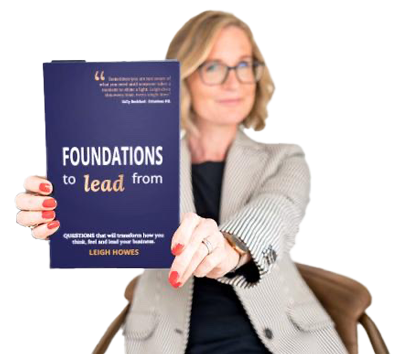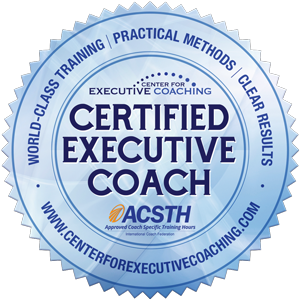
Research from The International Personnel Management Association (IPMA) suggests that ‘ordinary training’ typically increases productivity by 22% – while training combined with coaching increases productivity by a staggering 88%.
Which is huge!
And when you then leverage your strengths in coaching, research shows a 36% increase in your performance.
This is why I love offering coaching services, seeing my clients achieve the positive outcomes they’re searching for.
Coaching was first introduced to me during my HR career. The company I was working with were committed to developing their people and as such, invested in the tools, teachings and support to get leaders to become better coaches (specifically much of this worked to the ‘Grow Model’ of coaching).
In practice, I too became a coachee because my line manager was an exceptional coach and I had the benefit of learning from him directly.
At times though, not all of the situations I lent in on him, required a coaching intervention. This is true of clients who come to me and of individuals who I see getting support but may not be moving themselves forward.
The benefit of coaching alongside other interventions can be to reinforce learning and results. If you have a blind spot or something that’s slowing you down, this makes a huge difference. For example, if you’ve consumed a ton of knowledge but still you are not implementing or moving forward – coaching is a great intervention.
I believe when you are looking for support (whether you’re employed as a leader or running your own business), it’s critical to get clear on your needs both personally and in your work alongside the outcome you are looking for.
A mentor/consultant and a coach do (or should do!) different things.
Right now, I work with 3 different mentors/coaches and have needed different interventions at various stages of my own business journey.
- When I get stuck, or my beliefs or behaviours slow me down, I need a coach.
- When I need advice, accountability, knowledge and/or wisdom, I need a mentor / consultant (or maybe even a trainer).
Many people I’ve invested in working with can give me a combination of these things. Others specialise in one area.
Here is something controversial…. A ‘Business Coach’ in a title does not necessarily mean you will receive ‘coaching.’ It goes without saying really but it’s SO important you do your own due diligence to ensure that the person can give you what you need.
Plus, it’s useful to know which style will suits you best, according to your budget, learning style and structure (1:1/group/online/in person.)
Coaching (and mentoring/consultancy) should be seen as an investment in you and your business. Where required (eg; when you are getting in your own way) it can be as important – if not more so – than the more obvious investments you might make in your business or career, like training your team, recruitment, branding, website, systems etc.
What exactly will I get from coaching?
My specialism is Executive (Leadership) and Business Coaching. I also provide other interventions such as HR & Business Consultancy, Mentoring and Training. And there are other coaches who specialise in other aspects of your career/life.
I work mainly with leaders (both business owners and in employed roles), managers, high-performers and up-and-coming leaders. Others may specialise in marketing, life, branding, career, breakthrough, divorce and many more.
The point of coaching with me is to achieve a valuable outcome, usually:
· Improved performance;
· Higher profit or revenue,
· Career success,
· Effectiveness in your role;
· Or personal fulfilment.
The great benefit of coaching is that you are very likely to see quick, positive results as an outcome. This is because coaching is participative, and you tend to learn and adopt new habits more easily when you’re actively engaged in the learning process (rather than just consuming information). As soon as a coaching session ends you can implement a new practice.
The coaching process is entirely devoted to you. You’re in the driving seat and you decide the agenda – based on your challenges, focus, objectives and progress with new behaviour goals. Coaching takes place over an extended time, giving you the chance to celebrate your progress as well as continually challenging yourself and stay accountable and encouraged to work on areas that need focus and improvement.
Coaching is a dialogue. You do 75% of the talking, to express your concerns, challenges & feelings. A coaching process enables you to determine your own answers and action steps – not only to solve your immediate issues, but to empower you with the capacity to keep improving.
The aim should be that your improvement is sustainable over time. It’s that old analogy – coaching is teaching people how to fish, not feeding them for a day.
Don’t you have to be an expert in my field, to coach me?
Pure coaching allows you to formulate your own solutions & actions, as a result of skilled listening & questioning.
This means your coach does not need to be an expert in your field. They should remain open-minded and objective, with open questions and curiosity. You take more ownership of the solution, so you have a greater commitment to the action required and the solution. And because you chose it, it’s more likely to be the right fit for you.
However, pure coaching can take longer to reach an outcome. And sometimes you just need an answer. This is where a more directive coaching approach can come into play or mentoring (NB this is not typically supported by the ICF – International Coaching Federation.)
Directive coaching or mentoring can be incredibly helpful when the coach does have direct knowledge of & experience in the role that you’re currently in. Providing advice and direction to help you get to the solution more quickly.
The benefit here is you get the advantage of your coach and their hindsight – but because you have less ownership, rather than finding the solution for yourself, you may be less committed to taking the action required.
I personally like balance of the two, having a coach who is agile & adapting to your needs.
What coaching is NOT…
Just so you can be certain it’s right for you – let’s be clear on what coaching is not.
- Coaching is not therapy.
- The Coach is not fixing you.
- You should not be delving into traumatic pasts.
You may well dig deep beneath the surface, to look at your perceptions & beliefs (limiting or otherwise). But the emphasis is on helping you to overcome your challenges, address blind spots or blocks stopping you moving forward.
A coach should guide you, support you and be the vehicle to help you navigate your way but they don’t have a crystal ball or magically have the answer.
Please also know that coaching is NOT consultancy. It’s a partnership, to provide you with insights to take action on & improve your results.
Coaching often gets confused with mentoring, too. The main difference is that a coach doesn’t need to have done your job previously, as a mentor does (see earlier comment.)
And finally – coaching isn’t training, either (but that’s a whole other blog!).
If you’ve found this helpful, click here to download your (free) copy of ‘3 Steps to Better Leadership Skills’which has more tips to help you step even further into your BRILLIANCE.
Or to find out more about coaching with me, just click here. I’d love to help.
Here’s to your leadership success!
Leigh
Leigh Howes helps leaders & businesses gain greater insight, leverage strengths and elevate behaviour to impact results and performance; allowing them to bring their best ‘leadership’ self to work.
This is done through individual or combined interventions of coaching, consultancy, training & mentoring.



